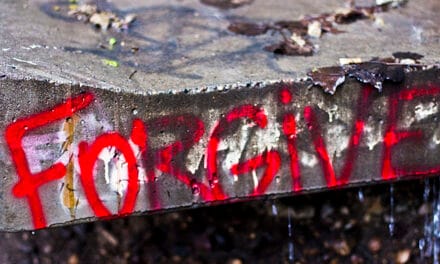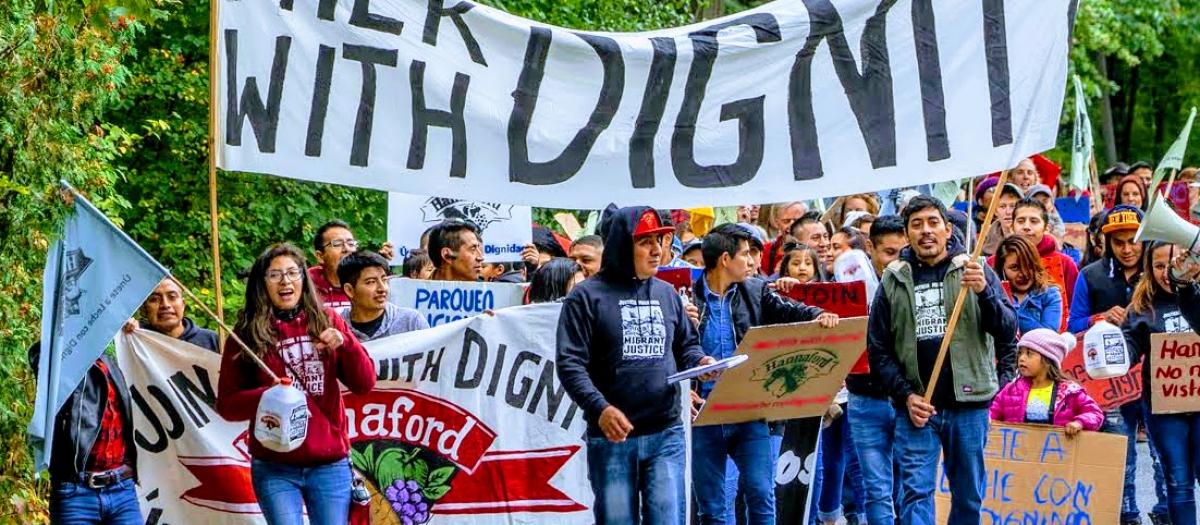On April 15, Border Patrol agents tackled a 27-year-old Salvadoran man to the pavement on Massachusetts Avenue in Portland. They zip-tied his limbs and threw him into the back of an unmarked vehicle. “It looked like someone getting kidnapped,” a witness told reporters. That’s because it was: a state-sponsored abduction, a spectacle of fear, and a message.
Eyidi Ambila, a man from the Democratic Republic of Congo, served a short sentence in Cumberland County Jail and has since been caged for over eight months by ICE with no new charges, no passport, and nowhere to be deported. This is not immigration enforcement—it’s indefinite detention and state-sanctioned cruelty. A federal judge ruled that Ambila can stay in the U.S. while appealing his deportation, acknowledging that returning him could mean arbitrary arrest, prolonged imprisonment, or torture. Let that sink in: the government admits deportation could lead to torture and still wants to deport him. He’s not a threat. He’s not a flight risk. He’s a living example of a system that dehumanizes, disappears, and discards.
Marcos Henrique and Lucas Segobia, two skilled immigrant workers en route to a job in Maine, were abducted by ICE without charges. They were disappeared for over 36 hours and moved from one facility to another, while ICE lied to their families about their location. Jail staff refused responsibility. It was only after public pressure that officials finally tell their families where they were detained but the respite was brief, ICE, against their families wishes, moved them out of state.
These are not outliers. These are the cases that made it into the press. In April, documents obtained by the ACLU revealed that Cumberland County Jail was detaining 80 people for ICE, and Two Bridges Jail another 25. That’s over 100 people disappeared into the deportation pipeline with the full cooperation of local law enforcement. This is not policy failure—it’s policy success. It is not an accident—it is the infrastructure of repression being put to work to manage the turbulence of dying world.
We are living in the chaos of a collapsing order. Since the 1970s, the twin engines of neoliberal globalization and carceral expansion have reshaped United States: dismantling public institutions, deregulating capital, and replacing mass employment with mass policing, imprisonment, and deportation. What we are witnessing now is not an aberration but the terminal stage of this conjuncture—a world where crisis is met not with care or redistribution, but with cages and scapegoats. Immigration enforcement emerged to discipline labor, to create a hyper exploited strata of the labor market. Now it is being used by the Trump Administration to impose a blatantly fascist order.
To confront this reality, we start with a simple demand: End Cooperation Between Cumberland County Jail and ICE. And we understand that this demand is also a call to end suffering now, dismantle the deportation machine, and it opens the door to new solidarities and new ways of life.
The Event: Spectacle, Terror, and the Demand for Community Defense
The spectacle of forced removal is meant to terrify. It’s meant to be seen. It teaches entire communities to live in fear and sends a warning: no one is safe. The raids, the unmarked vans, the zip-ties—this is fascism in rehearsal. These moments are not isolated incidents; they are performances of state power. The goal is not merely removal. It is submission.
But for every spectacle of fear, we must respond with a celebration of solidarity. These bewildering, terrifying event demand community defense. They demand mutual aid. They demand we show up: outside jails, inside courtrooms, on the streets. The Trump Administration wants to fear going viral. Resistance must spread faster.
The Conjuncture: Neoliberalism, The Carceral State, and Crimmigration
Beneath the immediate spectacle is a broader structure of political economy. Over the last four decades, both parties have built the crimmigration regime—a fusion of carceral control and immigration enforcement designed to regulate the labor market and manage surplus populations. Reagan began immigrant detention. Clinton passed the laws that made mass deportation possible. Bush created ICE, consolidating immigration enforcement into a nationwide, federal police force. Obama used these tools to deport more people than any president in history. And Trump, despite all his gratuitous authoritarianism, has, in both terms, been unable to match the monthly deportation numbers of his democratic predecessors.
The system was not built to ensure justice. It was built to create a precarious workforce and a permanent underclass. It fabricates social order by dividing workers, criminalizing mobility, and treating migration as a security threat. The Trump administration is now using this bipartisan machinery to impose a more openly fascist order.
This is why ending ICE cooperation in Cumberland County matters. It’s not just a local demand. It’s a strike at on the pillars of the crimmigration system. It removes key logistical support. It complicates ICE’s ability to function. It interrupts the flow of bodies from street to cell to deportation. It is a lever of disruption—and it must be pulled.
The Longue Durée: Capitalism, Racial Division, and the Possibility of a New World
Zoom out further, and the contours of a deeper struggle emerge. The United States is a settler-colonial state founded on land theft, racial hierarchy, and labor exploitation. From slavery to Jim Crow to mass incarceration, from the reservation to the ghetto to the border, the same logics persist. Capitalism appropriates and exploits labor and then organizes abandonment. It produces surplus people: unemployed, unhoused, undocumented, untreated. It punishes these victims and twists and contorts their situations to make them appear as enemies to be contained, excluded, and expelled.
But from within that hell, new worlds are being born.
Presente! Maine is showing us how. Their land and food sovereignty programs, mutual aid work, and wellness initiatives are rooted in the labor and leadership of Maine’s Latine immigrant communities—most of whom work in the very sectors propping up this state’s tourism and agricultural economies. This is not charity. It is not service. It is revolutionary infrastructure. It builds autonomy. It deepens solidarity. It models a different way to live—with the land, with each other, and beyond the violence of borders and bosses.
This campaign is part of that same struggle. It’s not just about removing ICE from our jails. It’s about removing ICE from our future so we can build something better, something more humane, something that can unite New and Old Mainers.
We Are Not Asking—We Are Organizing
Of course, movements that threaten power face opposition—not just from reactionaries, but from liberals who want to manage dissent. We see it already. Some prominent liberal immigration advocacy organizations oppose ending ICE cooperation with the Cumberland County Sherriff, arguing that keeping people detained in Maine in the state aids legal defense. But proximity is not justice. Marcos and Lucas were hidden for 36 hours. Their families were lied to. Eyidi has been held for months with no end in sight. The system is built on opacity and cruelty. Local detention doesn’t protect—it enables.
The point is not to make the system more efficient. The point is to make it impossible.
Real change doesn’t come from appealing to authority. It comes from disrupting business as usual. From making the status quo ungovernable. From forcing elites to choose between justice and disorder. This is how power concedes. This is how history shifts.
We are not asking for better policies. We are not asking for a seat at the table. We are organizing to break the table in half.
For Marcos and Lucas.
For Eyidi.
For every neighbor taken in silence.
For every worker forced into the shadows.
For every life destroyed, for family shattered by the perpetual police war in the name of security and order.
End ICE cooperation in Cumberland County.
Free them all.
Stop the deportation machine.




